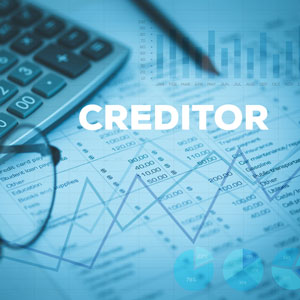
What Should I Bring To My Debt Defense Court Hearing In Kansas? For your debt defense court hearing in Kansas, it’s important to bring the following: Court notices or filings, that is, any documents you’ve received related to the case, such as the summons, complaint, or court orders. Debt contract, or a copy of the original agreement with the creditor, like a loan or credit card contract. Proof of payments, such as bank statements, receipts, or payment confirmations, that show your payment history. Correspondence with the creditor, be it emails, letters, or records of communication about the debt. Identification, namely a valid ID, such as a driver’s license or state ID. If possible, consult with an attorney for additional guidance on what might be necessary for your specific case. What Should I Expect During The Court Proceedings? During the court…Read More

Your credit report isn’t just a number—it’s a snapshot of your financial journey, showing lenders and others how you’ve managed your debts over time. For those looking to rebuild their credit or improve a low score, there are proactive steps you can take to correct errors, protect your report from identity theft, and slowly rebuild your credit health. Here’s a simple guide to get you started. Understand What A Credit Report And Score Really Are A credit report details your borrowing history: the accounts you’ve opened, payments you’ve made, and any overdue balances. The three main credit bureaus—Experian, Equifax, and TransUnion—compile this information. Each bureau calculates a score based on your payment history, outstanding debt, account types, and credit age. This score tells lenders at a glance how reliable you are when it comes to repaying debt. Check Your Credit…Read More

When faced with debt collection calls, it’s easy to feel pressured to make quick decisions that may not be in your best interest. However, by using the right tools and understanding your rights, you can stay in control of your finances. Below, we’ll walk you through essential templates to handle creditor communications—whether you’re requesting information, disputing a debt, or asking for communications to stop. Downloadable versions of each form are provided for convenience, and you can customize them to fit your specific needs. Stay Firm in Your Choices—Don’t Let Collectors Decide for You Collectors may push you to prioritize their debt, but your financial choices should be yours alone. Unforeseen life events like job loss, health issues, or family changes are often at the heart of financial challenges. Collectors know these situations are common, yet they’ll use urgency to try…Read More

What Is The Difference Between A Creditor And A Debtor? A creditor is an individual or entity to whom money is owed, such as a bank, credit card company, or other lender. Creditors provide loans or extend credit, expecting repayment from the debtor. A debtor is a person or entity that owes money to a creditor. In legal terms, the debtor is typically the party seeking representation in debt-related cases. The debtor's responsibility is to repay the debt according to the terms agreed with the creditor. What Is A Debt Collection Notice? What Should I Do If I Receive One? A Debt Collection Notice is a formal notification from a creditor or collection agency informing a debtor about an outstanding debt. It typically includes the amount owed, the creditor's name, and instructions for repayment. When you receive a debt collection…Read More

Dealing with debt can be challenging, but with the right strategies in place, you can take control of your financial situation and protect your long-term stability. In this guide, we outline six essential principles designed to help you effectively prioritize your obligations, navigate creditor interactions, and avoid costly mistakes. These rules offer a roadmap for managing debt while focusing on what truly matters—your financial security and peace of mind. Rule 1: Prioritize Debts That Immediately Affect Your Family When facing multiple debts, it is essential to focus on obligations that carry the most immediate risk. High-priority debts, such as mortgage payments, rent, utilities, car loans, and child support, should take precedence. Failure to address these debts can result in serious consequences, including eviction, loss of essential services, or repossession. Lower-priority debts, such as credit card balances, private student loans, or…Read More

